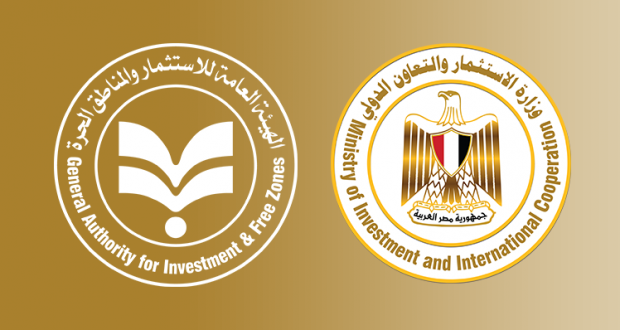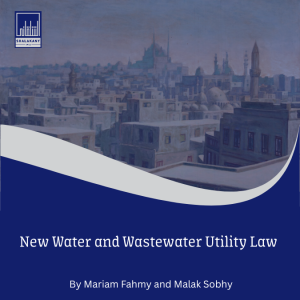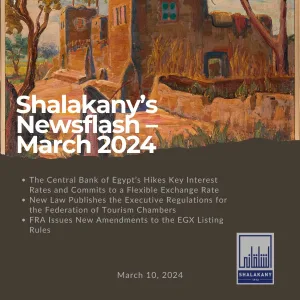In an effort to mitigate the impact of the Covid-19 outbreak and improve upon the previously promulgated legislation, the President of the Arab Republic of Egypt ratified Law No. 152 for the year 2020 on the development of micro, small and medium enterprises on 13 July 2020 (the “Law”). The Law repeals the previously enacted Law No. 141 for the year 2004 regulating the same subject matter.
We will guide you through the key highlights of the Law.
The definition of micro, small and medium enterprises (“MSMEs”) and Entrepreneurship Projects
To sidestep the confusion resulting from the ambiguity around what constitute MSMEs, an issue that existed until the enactment of this Law, the Law provides the following definitions:
-
- Micro enterprises: any enterprise with an annual turnover of less than EGP 1 million, or any newly incorporated enterprise with a paid up or invested capital (as the case may be) of less than EGP 50 thousand;
- Small enterprises: any enterprise with an annual turnover between EGP 1 million and EGP 50 million, any newly incorporated industrial enterprise with a paid up or invested capital (as the case may be) between EGP 50 thousand and EGP 5 million, or any newly incorporated non-industrial enterprise with a paid up or invested capital (as the case may be) between EGP 50 thousand and EGP 3 million; and
- Medium enterprises: any enterprise with an annual turnover of EGP 50 million or more and does not exceed EGP 200 million, any newly incorporated industrial enterprise with a paid up or invested capital (as the case may be) between EGP 5 million and EGP 15 million, or any newly incorporated non-industrial enterprise with a paid up or invested capital (as the case may be) between EGP 3 million and EGP 5 million.
Further, the Law considers “newly incorporated” enterprises to be any enterprises that are still within their first two years of incorporation.
The Law further defines “Entrepreneurship Projects” as projects that have been undertaking their activities/production for less than seven years and involve a certain level of innovation.
Micro, Small and Medium Enterprises Development Agency (the “MSMEDA”)
The MSMEDA is the competent authority to implement the provisions of the Law. The MSMEDA is affiliated to the Prime Minister and concerned with the development of MSMEs and Entrepreneurship Projects.
Facilitation of funding for MSMEs
The Law includes provisions aimed at protecting funding institutions, which should incentivize these institutions to provide funds to MSMEs. Under the Law, funding institutions are offered guarantees allowing those to recover their funds in case MSMEs fail to comply with the terms of the agreements signed for the purpose of funding their activities.
The guarantees relate to the allocation of land to MSMEs for the purpose of conducting their activities, these guarantees are as follows:
-
- lands granted to MSMEs are made in the name of the funding institution; and
- MSMEs benefiting from such land allocation may not dispose of such land until full repayment is made (i.e. sell or benefit from rights that the actual owner of such land would have).
The Law provides the order through which the funding institutions may recover their rights in case the MSMEs are facing difficulties in settling their financial obligations.
The Law states that the board of directors of the MSMEDA shall issue an incentives program for the institutions partaking in the funding of MSMEs’ activities. The Law provides that these benefits may be similar to the non-tax incentives granted to MSMEs, some of which are outlined below.
Incentives under the Law
MSMEs undertaking certain activities/projects provided for under the Law are granted several non-tax incentives such as:
-
- funding the costs for training the MSMEs’ personnel;
- the allocation of land (whether in exchange of a nominal consideration or without consideration); and
- exempting MSMEs from providing guarantees or security until obtaining the required assets for undertaking their activities or decreasing the value of the guarantees or security required for obtaining such assets.
In addition, MSMEs are also granted tax incentives. These incentives exempt enterprises from the payment of, inter alia, the following:
-
- stamp duties;
- notarization fees; and
- any registration fees required for the registration of the land required for undertaking the relevant activities. These incentives apply for the first five years following the MSMEs’ registration with the General Authority for Investment and Free Zones’ Commercial Registry (“GAFI”).
Further, the Law sets the custom tax rates for all MSMEs to 2% and provides certain incentives with respect to the taxation of the MSMEs’ capital gains.
According to the Law, institutions that undertake any of the following activities may also benefit from the non-tax incentives granted to MSMEs and Entrepreneurship Projects:
-
- the establishment of, inter alia, industrial, production-based, or services-based clusters or complexes that include space for MSMEs; and
- business incubator and accelerator activities (i.e. services that help accelerate the growth of start-ups, which help attract venture capital firms).
Governmental outlets for MSMEs
The Law states that governmental outlets (similar to a one-stop shop) are to be established inside and outside GAFI, throughout the governorates of the Arab Republic of Egypt, so that MSMEs be able to obtain the necessary licenses and approvals for conducting their business.
Market reaction
The Law aims to reinvigorate and strengthen the MSMEs sector, after a period of uncertainty caused by Law No. 141 for the year 2004. In an interview with Ahram online, Egypt’s Minister of Trade and Industry Nevine Gamea said “[the Law] has initiated flexible mechanisms, expanded the financial and non-financial incentives and applied a smoother tax system to make funds more accessible for MSMEs. Under the new law, financial institutions are endowed with more privileges that help them guarantee their rights and support their positions in claiming their funds back.”.



